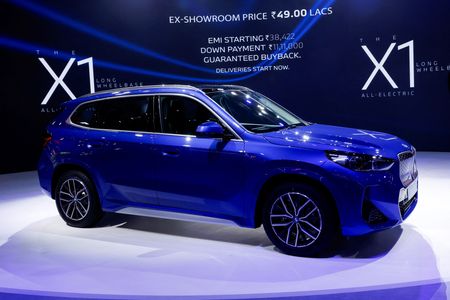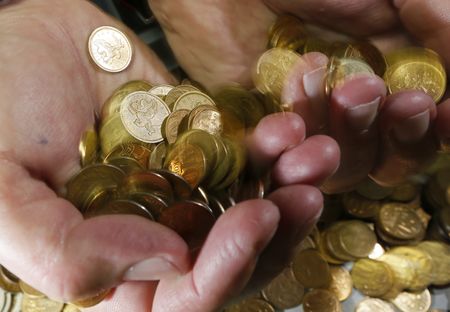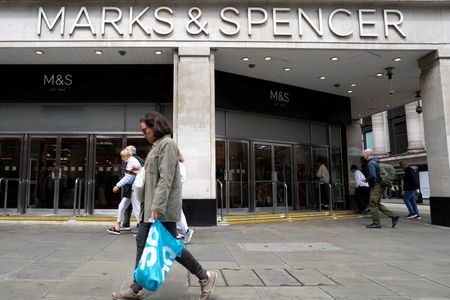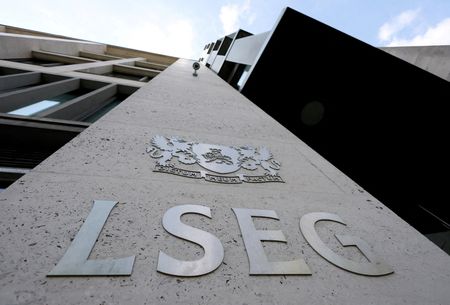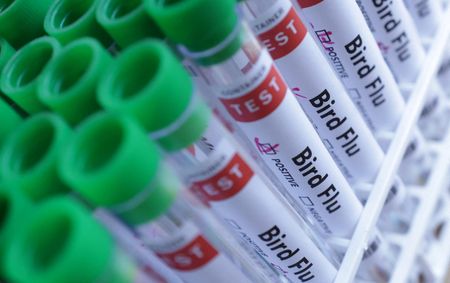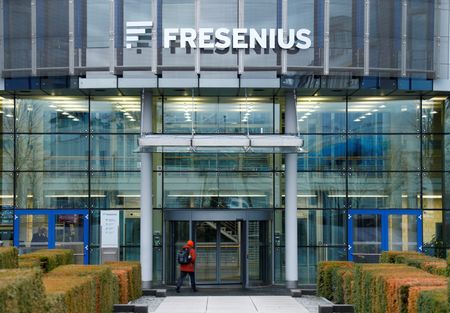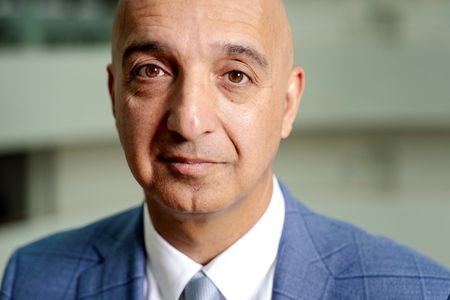By Rachel More and Christina Amann
BERLIN (Reuters) -German automaker BMW’s core profit margin rose in the third quarter as it passed the peak in research and development spending on a new all-electric range that it hopes will boost growth amid stiff competition in China.
The results were a bright spot in another difficult quarter for Europe’s automakers, as they face a new reality of high U.S. tariffs and cheap Chinese competition, with a looming chip supply crunch potentially bringing more uncertainty.
BMW beat forecasts on Wednesday with an operating margin of 5.2% for its automotive unit in the July to September period, up from 2.3% a year earlier when brake issues hit sales.
BMW BOASTS RESILIENCE DESPITE CHINA WOES, TARIFFS
Shares in the carmaker were up 2.4% at around 0900 GMT.
“In the third quarter, we once again proved that our business model is robust and resilient,” CEO Oliver Zipse said.
Group earnings before interest and tax met forecasts at 2.3 billion euros ($2.7 billion), while revenues were slightly weaker than expected at 32.3 billion euros.
After cutting its full-year guidance last month due to tariff costs and slow growth in China, the group said it continued to expect the margin for cars within a range of 5% to 6%, slipping from 6.3% in 2024.
The group expects the first model from the all-electric “Neue Klasse” series to drive growth in 2026, adding it had “transitioned” from last year’s record investment in its EV portfolio.
In Europe, orders for the iX3, the debut model of the new series, extend several months into 2026, Zipse said. The pricing for the model had not been set yet for the highly competitive Chinese market, he said.
“We believe that BMW’s Neue Klasse offers a compelling way to play the sector. In our view, we are on the eve of one of the most comprehensive transformation stories we see in our coverage,” analysts at Bernstein said.
HIGHER TARIFFS WEIGH IN US, EU
Tariffs reduced BMW’s car margin by around 1.75 percentage points in the third quarter, the company said.
As one of the largest car exporters from the U.S. by volume thanks to its Spartanburg plant in South Carolina, BMW is better positioned for President Donald Trump’s trade war than brands with no U.S. production presence, such as Audi and Porsche.
However, BMW is also contending with EU tariffs hitting its Chinese-made electric Mini.
($1 = 0.8575 euros)
(Reporting by Rachel More; Editing Jan Harvey, Mark Potter and Tomasz Janowski)

